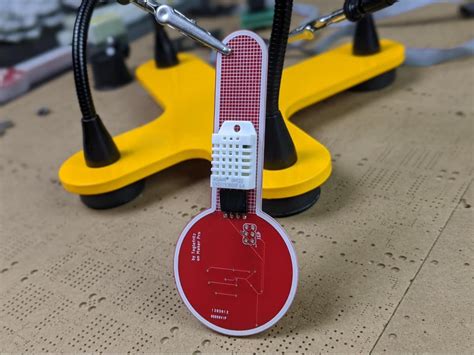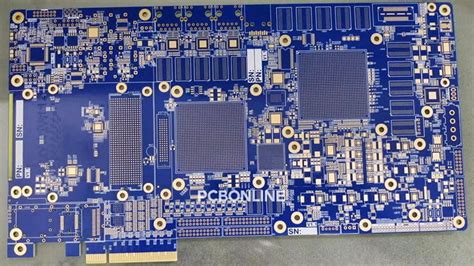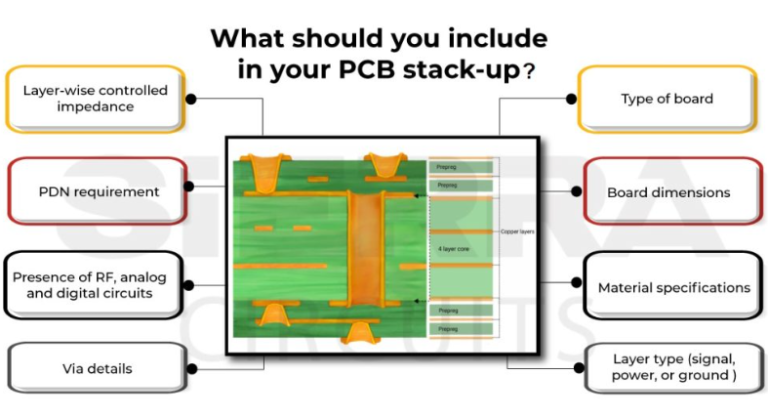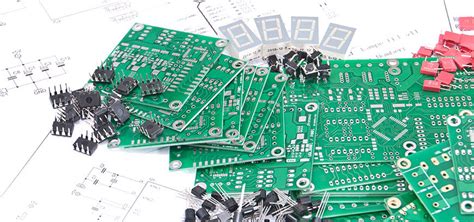Essential Guide to PCB OEM Services and Solutions

Key Takeaways
When considering PCB OEM services for your electronic projects, it’s essential to grasp the multifaceted nature of pcb assembly and the implications for your end products. First and foremost, PCB manufacturers provide a wealth of expertise that can significantly enhance the quality and efficiency of your designs. By engaging with these specialized partners, organizations can leverage advanced techniques in fabrication and assembly, ensuring that their pcba processes are optimized for performance and reliability. It’s also important to recognize that collaboration with OEMs can lead to substantial cost savings, as they often have established supply chains that streamline procurement processes. Moreover, embracing best practices in PCB manufacturing allows businesses to maintain flexibility in their projects while navigating potential challenges more effectively. Ultimately, staying informed about the latest trends and technologies in the PCB OEM landscape will empower companies to make strategic decisions that align with their long-term goals. By doing so, they can enhance their product offerings and remain competitive in a rapidly evolving market.
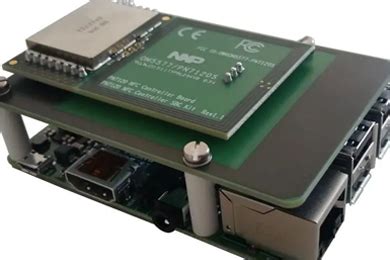
Understanding PCB OEM Services: An Overview
PCB OEM (Original Equipment Manufacturer) services play a crucial role in the electronics manufacturing sector, providing essential support for the development of printed circuit boards (PCBs) and PCB assembly processes. Understanding the fabric of these services is vital for companies looking to enhance their electronic projects. These services encompass a range of operations, from the design and fabrication of PCBs to the actual assembly, known as PCBA (printed circuit board assembly). Partnering with reputable PCB manufacturers ensures that organizations can leverage specialized expertise and technology, which is crucial for producing high-quality devices efficiently. The process typically involves collaboration through various stages, including prototyping, testing, and mass production. Key elements such as quality control, cost management, and timely delivery are fundamental for successful partnerships in this domain. By grasping these aspects of PCB OEM services, businesses can effectively navigate their project needs and establish a competitive edge in the ever-evolving tech landscape.
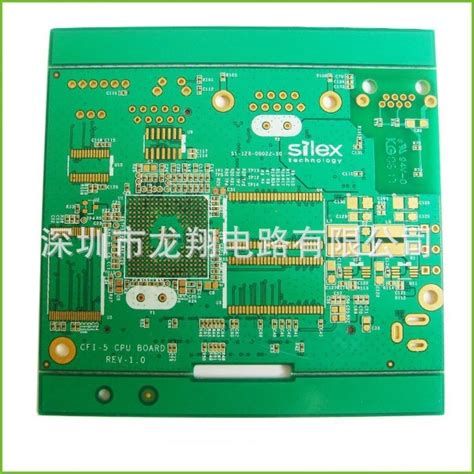
Key Benefits of Partnering with PCB Manufacturers
Partnering with PCB manufacturers offers a multitude of advantages that can significantly impact the efficiency and success of electronic projects. One of the most notable benefits is access to specialized expertise. PCB manufacturers often have extensive experience in producing high-quality PCB assembly (or PCBA), enabling them to navigate the complex nuances of design and manufacturing processes effectively. Their know-how can lead to innovative solutions, ensuring that projects not only meet specifications but also exceed expectations in performance.
Additionally, collaborating with these manufacturers can lead to cost savings. By leveraging their established supply chains and economies of scale, organizations can reduce material costs and production timelines, which is crucial for maintaining competitive pricing in the market. Furthermore, PCB manufacturers typically provide advanced technologies and equipment that may be prohibitively expensive for smaller companies to invest in individually. This access enables businesses to produce more sophisticated designs without compromising quality.
Quality assurance is another critical benefit that comes from working with experienced PCB manufacturers. These companies implement rigorous testing protocols throughout the production process, ensuring that all PCBs meet industry standards and regulations before being delivered to clients. This not only reduces the risk of defects but also fosters greater confidence in the final product’s reliability.
Moreover, with advancements in manufacturing techniques such as automation and integration of IoT (Internet of Things), partnering with PCB manufacturers allows companies to stay ahead in a rapidly evolving technological landscape. As demand for miniaturization increases, experts will be skilled at producing compact yet efficient PCBA designs that align with current market trends.
In summary, forging a partnership with well-established PCB suppliers is invaluable for anyone looking to enhance their electronic projects through improved technical expertise, cost efficiency, superior quality assurance, and adaptability to future innovations in the industry.
Essential Solutions Offered by PCB OEMs
PCB OEMs provide a variety of essential solutions tailored to meet the diverse needs of the electronics industry. Among these solutions, PCB assembly or PCBA stands out as a critical service. This process involves the integration of electronic components onto printed circuit boards, effectively transforming them into functional electronic devices. By leveraging advanced manufacturing technologies, PCB OEMs can offer high-quality PCBA services that ensure reliability and performance in end products.
Another important solution is design for manufacturability (DFM), which allows clients to optimize their designs for easier and more cost-effective production. By collaborating with PCB OEMs in this capacity, companies can identify potential issues early in the development process, reducing time to market and minimizing production costs.
Testing services are also crucial components of what PCB OEMs offer. Thorough testing ensures that assemblies meet quality standards and function as intended before deployment. This includes both functional testing and reliability assessments, which are vital for maintaining high-quality control standards.
Moreover, many PCB manufacturers provide robust supply chain management solutions. By effectively managing the sourcing of materials and components, they help clients streamline their production processes and mitigate risks associated with supply chain disruptions.
| Solution | Description |
|---|---|
| PCB Assembly (PCBA) | Integration of components to create final products |
| Design for Manufacturability | Optimization of designs for easier production |
| Testing Services | Ensuring quality through comprehensive testing |
| Supply Chain Management | Streamlining sourcing and logistics processes |
“Partnering with a knowledgeable PCB OEM can significantly elevate the success of your electronic projects.”
In conclusion, the diverse array of solutions offered by PCB OEMs is designed to cater not only to the technical needs of clients but also to enhance overall project efficiency. Utilizing these services allows companies to focus on innovation and growth while ensuring that quality is maintained at every stage of production.
Best Practices for Collaborating with PCB Manufacturers
Collaborating effectively with PCB manufacturers is crucial to ensuring the success of your projects involving pcb assembly and pcba. A successful partnership begins with clear communication. Establishing a transparent dialogue allows both parties to understand project objectives, timelines, and expectations from the outset. It’s essential to share comprehensive project specifications, including design files, material requirements, and performance objectives, to minimize potential misunderstandings.
Another vital aspect is selecting the right PCB OEM based on their capabilities and specializations. Look for a manufacturer with experience in your specific industry and technology requirements. This not only ensures that they are equipped to meet your unique needs but also enhances the likelihood of superior product quality.
Regular feedback loops during the design and production phases play a significant role in refining processes and addressing issues promptly. Engaging in thorough reviews can lead to better alignment between your expectations and the manufacturer’s outputs. Moreover, it’s prudent to establish a robust quality assurance process that includes inspections at various stages of production.
Lastly, fostering a collaborative relationship goes beyond transactional interactions; it involves building trust over time. This can be achieved by prioritizing long-term partnerships that allow both parties to grow together sustainably, ultimately leading to enhanced innovation and efficiency in pcb assembly projects.

Navigating the PCB OEM Landscape: What to Look For
When venturing into the world of PCB OEM services, it is paramount to understand the key elements that can significantly affect your projects. Prioritize manufacturers that exhibit a robust track record in pcb assembly and PCBA processes, as their expertise often correlates with reliability and quality. Look for partners who offer state-of-the-art technology and equipment, ensuring that they can handle diverse designs and complex circuit boards. Additionally, assess their flexibility in terms of production capabilities—this includes willingness to accommodate varying order sizes and customization options.
Another critical aspect is evaluating their quality assurance processes. A manufacturer dedicated to maintaining high standards is likely to have rigorous testing protocols in place for electronic components, which not only ensures compliance with industry standards but also enhances the overall performance of your projects. Moreover, transparency in communication about every step of the manufacturing process is essential. A good PCB manufacturer should provide insights into potential challenges during production, allowing for better planning and mitigation strategies.
Finally, consider the geographical proximity of your PCB OEM partner. Localized manufacturing can lead to shorter lead times and reduced shipping costs, giving you an edge in today’s fast-paced market dynamics. As you navigate through potential partners, ensure that you are well-versed in these critical factors to foster a partnership that supports your innovation goals effectively.
Common Challenges in PCB OEM Partnerships and How to Overcome Them
Partnering with PCB OEMs can be a significant move for companies seeking to enhance their PCB assembly processes and overall product quality. However, such partnerships are not without their challenges. One common issue is communication barriers, which can lead to misunderstandings regarding project specifications and expectations. To overcome this, establishing clear communication channels and regular updates is essential. Another challenge is managing lead times; delays in PCBA production can disrupt project timelines. Businesses should implement a robust project management system that tracks progress and identifies potential bottlenecks. Additionally, quality assurance is often a concern when it comes to working with external manufacturers. It’s crucial to ensure that the PCB manufacturers adhere to the highest standards by vetting them thoroughly and possibly conducting on-site visits or audits. Finally, fluctuating costs of materials can impact budget forecasts; having flexible financial planning that accommodates variations in material prices can help mitigate this risk. By proactively addressing these challenges through effective management strategies, companies can foster successful and productive partnerships with PCB OEMs, ultimately leading to enhanced project outcomes and increased competitiveness in the market.
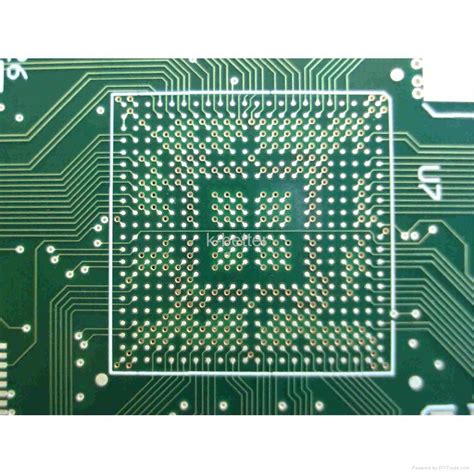
Case Studies: Successful Projects Utilizing PCB OEM Services
In the realm of electronics, collaborating with PCB OEM services has proven instrumental for many companies seeking to enhance their product offerings. One exemplary case is the development of a cutting-edge medical device that required a precise pcb assembly process. The chosen PCB manufacturer not only delivered exceptional quality but also optimized the production timeline, significantly reducing costs while maintaining compliance with stringent industry regulations. Another notable project involved a tech startup that leveraged pcba solutions to create a state-of-the-art IoT device. By partnering with an experienced OEM, they gained access to innovative technologies and efficient supply chain management, facilitating rapid market entry and performance enhancement. These cases illustrate how effective partnerships with PCB manufacturers can lead to innovative product solutions, streamline production processes, and ultimately drive business success in a competitive landscape. Furthermore, these projects highlight the importance of understanding the specific needs of the product lifecycle and selecting an OEM that aligns with strategic goals for sustained growth and innovation.

Conclusion
In summary, successful partnerships in PCB OEM services can significantly enhance the development and production of electronic components. By leveraging PCBA (Printed Circuit Board Assembly) capabilities, companies can achieve greater efficiency and quality in their projects. It is essential to understand that choosing the right PCB manufacturer involves evaluating their expertise in pcb assembly, their ability to meet specific project requirements, and their commitment to innovation. Establishing a transparent communication flow with PCB manufacturers facilitates timely feedback and ensures alignment throughout the development process. Furthermore, investing time in understanding the available solutions can provide strategic advantages, as it allows for tailored approaches that meet unique project demands. As industries continue to evolve, staying informed about emerging trends and maintaining flexibility in partnerships will be critical for achieving long-term success in electronics manufacturing.
FAQs
What is PCB OEM, and how does it relate to PCB assembly?
PCB OEM, or Original Equipment Manufacturer, involves companies that produce PCBs (Printed Circuit Boards) according to specific client specifications. This relationship is crucial as pcb assembly entails assembling these boards into final electronic products.
What are some common services offered by PCB OEMs?
PCB OEMs typically offer a range of services including pcb assembly, design support, prototype development, testing services, and mass production capabilities to meet various project needs.
How can partnering with a PCB manufacturer benefit my project?
Collaborating with a PCB manufacturer’s expertise can enhance product reliability, reduce production costs, and streamline the development timeline. Their knowledge in pcba ensures that quality standards are met.
What should I consider when selecting a PCB OEM partner?
Key factors include their experience in the industry, certifications, production capabilities, communication practices, and technological advancements. A reputable partner will also provide comprehensive support throughout the pcb assembly process.
Are there challenges in working with PCB OEMs? If so, how can they be addressed?
Yes, challenges may include communication barriers and discrepancies in quality expectations. Addressing these issues involves establishing clear guidelines at the outset and maintaining regular communication to ensure alignment at every step of the pcba process.


